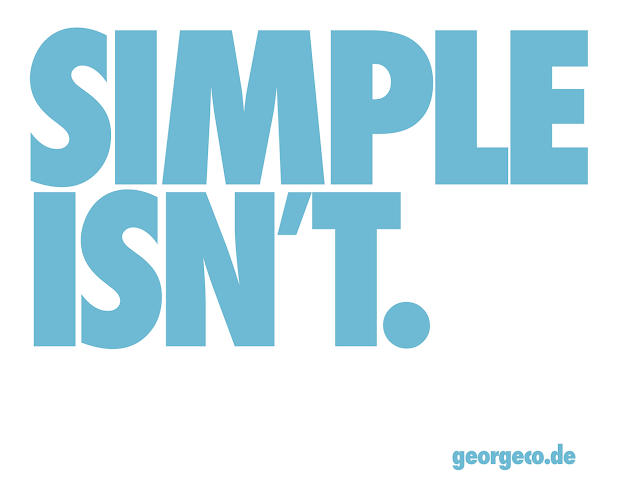If you are attuned to listening, you hear a lot of words you wish you hadn't.
Words that hurt your ears. Words that have no meaning. Words that muddy, rather than clarify.
You hear them all the time. They're usually mean and shrill and demeaning. They usually shout at you without kindness or consideration.
Worse are those who try to bamboozle you, or bullshit you with big words or jargon that really don't have any meaning. This is another technique designed to bring you down a peg. It's a way of saying, 'you don't understand our specialized language. Therefore you're not smart, cool or one of us.'
Cliques in high school do this sort of thing. The 'in' crowd has their own language, specifically designed to keep others out.
Agency life was full of this linguistic bombast, segregation and ostracizing. Without mangling and Newspeak, agencies would be as quiet as a tomb. I heard it a lot when someone was trying to kill an idea or to get you to do something their way. They'd trot out, or shovel out the crap. If you weren't savvy enough to catch on, you often wound up wounded. Or plowed under by an empty and hurtful loquaciousness.
For about the last 102 years of my life, I've tried to write in simple English so my readers could understand it. Especially when I write in service of a client.
There are so many meaningless words we expect to read in certain situations because everyone uses them. If you're bold enough to try to get someone to clarify them, you get a lot of stammering as a response. If someone does try to explain, chances are they'll explain things using the exact same words that needed explaining in the first place.
"Agile means we'll move with agility using an agile methodology."
Not too many hours ago, a friend sent me some gibberish put out by a client I spent a long time working for. This client has a market cap of almost $120 billion. I didn't want to single any one client out, so I did a tiny bit of searching. Things didn't get any better the more I searched.
You can take it or leave it, as you wish.
Some thoughts on writing from George
Orwell's
"Politics and the English Language."
To guide writers into writing clearly and truthfully, Orwell proposed the following six rules:
1. Never use a metaphor, simile, or other figure of speech which you are used to seeing in print.
2. Never use a long word where a short one will do.
3. If it is possible to cut a word out, always cut it out.
4. Never use the passive where you can use the active.
5. Never use a foreign phrase, a scientific word, or a jargon word if you can think of an everyday English equivalent.
6. Break any of these rules sooner than say anything outright barbarous.
Along the way, I've added this to it:
There's nothing you can learn about writing--from anyone or from anywhere--that is as important as asking yourself a simple question or five.
Ask yourself these questions as you pick up your pencil or tap on your keys. They can't hurt. And they might help.
1.
Are you writing to impart useful information to people or are you writing to show how smart you are?
A lot of writing I see uses big words and ridiculously long sentences. It doesn't explain anything.
2.
Are you writing to clarify things or to confuse issues? Are you writing to simplify or complicate?
So much of what we read uses jargon and cliches. It's obvious to me that not even the writer knows what they're trying to communicate. Or they're being purposefully deceptive for nefarious purposes.
3.
Are you writing lies or have you decided to tell the truth? That is are you writing honestly, or dishonestly?
I often bump into writing that is as circuitous as the roads in a gated community. If you respect the reader, you get to the point. Don't lead them into cul-de-sacs or dead ends.
4. Are you trying to reach people or bully them?
About 85% of the VOs I hear on television is an announcer yelling at viewers. Much of writing also feels more like berating. Is someone channeling my mother?
5. Do you want people to read what you've written or just see that you have written?
A lot of writing starts out with cliches and buzzwords and stock-phrases that indicate to the reader that the writer has put no thought and even less-candor into what they've sent out. This is writing that allows Authority to say they've done the right thing while doing the wrong thing.
I suppose you can reduce all these questions to one:
Will the reader trust (and like) the writer--even if they're told something harsh--or will they feel after reading that they've been hosed-down with bullshit and the smell is lingering?





No comments:
Post a Comment